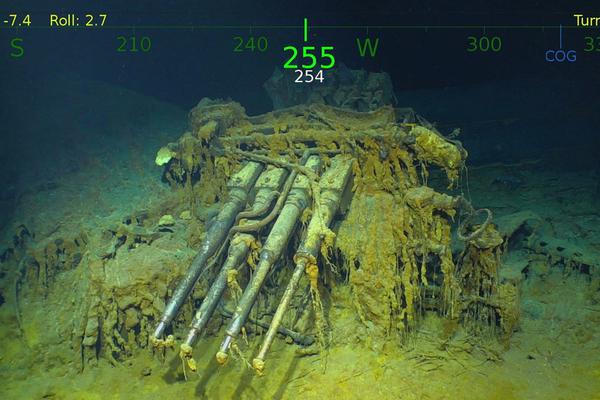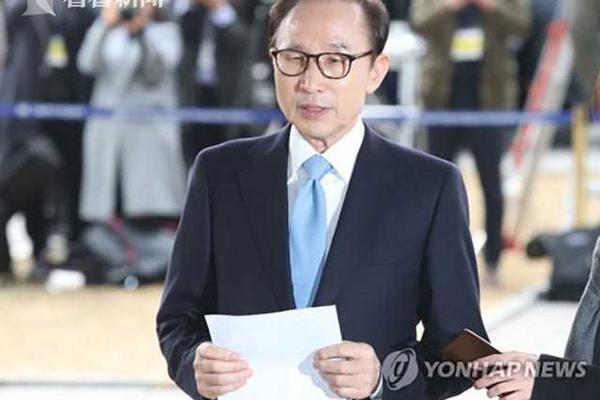
1. The five functions of the operating system are processor management, memory management, device management, file management and job management. Processor management The most basic function of processor management is to process interrupt events. After configuring the operating system, various events can be processed.
2. The main function of the computer operating system is process management, and its work is mainly process scheduling. In the case of a single user and a single taskNext, the processor is only monopolized by one user's task, and the process management work is very simple.
3. Operating System (abbreviation: OS) is a group of interrelated system software programs that supervise and control computer operation, use and run hardware, software resources and provide public services to organize user interaction.
4. Five major management functions of the operating system: (1) Job management: including tasks, interface management, human-computer interaction, graphical interface, voice control and virtual reality, etc. ( 2) File management: also known as information management. ( 3) Storage management: The essence is the management of storage "space", which mainly refers to the management of the main memory.
Any information system has five basic functions, namely: information collection and recording (input); information storage; information processing; information transmission; information output .
According to the functional introduction of the information system, the information system has five basic functions: input, storage, processing, output and control. Different functions have different functions, such as input function: the input function of the information system is determined by the purpose to be achieved by the system, the ability of the system and the permission of the information environment.
Five basic functions of the information system: input, storage, processing, output and control. Input function: The input function of the information system is determined by the purpose to be achieved by the system, the ability of the system and the permission of the information environment.Storage function: Storage function refers to the ability of the system to store various information and data. Mainly including: statistical functions.
The operating system has five functions: processor management: mainly controls and manages the work of the CPU. Storage management: mainly allocate and manage memory. Device management: mainly manage basic input and output devices. File management: responsible for the organization, storage, operation and protection of computer files.
The functions of the computer operating system include: processor management, memory management, device management, file management, job management and other functional modules. Processor management. The most basic function of processor management is to handle interrupt events. The processor can only detect interrupt events and generate interrupts and cannot process them.
The main function of the computer operating system is process management, and its main work is process scheduling. In the case of a single user and a single task, the processor is only monopolized by one user's task, and the work of process management is very simple.
The main functions of the operating system are process and processor management, job management, storage management, device management and file management, as follows: process and processor management. Because the execution of the program must rely on the processor, only one program flow can be processed and executed at any time. Homework management.
I) Processor management The most basic function of processor management is to handle interrupt events. The processor can only detect interrupt events and generate interrupts, and cannot handle these interrupt events. After configuring the operating system, all types of events can be handled.Another function of processor management is processor scheduling.
Five management functions of the operating system: job management: including tasks, interface management, human-computer interaction, graphical interface, voice control and virtual reality, etc. File management: also known as information management. Storage management: The essence is the management of storage "space", which mainly refers to the management of the main memory.

The storage management function of the operating system is to manage memory resources. It mainly realizes memory allocation and recovery, storage protection and memory expansion. The device management of the device management operating system is responsible for allocating and recycling external devices, and controlling external devices to operate according to the requirements of user programs.
The functions of the computer operating system include: processor management, memory management, device management, file management, job management and other functional modules. Processor management. The most basic function of processor management is to handle interrupt events. The processor can only detect interrupt events and generate interrupts and cannot process them.
The five functions of the operating system are processor management, memory management, device management, file management and job management.Processor management The most basic function of processor management is to process interrupt events. After configuring the operating system, various events can be processed.
casino plus free 100-APP, download it now, new users will receive a novice gift pack.
1. The five functions of the operating system are processor management, memory management, device management, file management and job management. Processor management The most basic function of processor management is to process interrupt events. After configuring the operating system, various events can be processed.
2. The main function of the computer operating system is process management, and its work is mainly process scheduling. In the case of a single user and a single taskNext, the processor is only monopolized by one user's task, and the process management work is very simple.
3. Operating System (abbreviation: OS) is a group of interrelated system software programs that supervise and control computer operation, use and run hardware, software resources and provide public services to organize user interaction.
4. Five major management functions of the operating system: (1) Job management: including tasks, interface management, human-computer interaction, graphical interface, voice control and virtual reality, etc. ( 2) File management: also known as information management. ( 3) Storage management: The essence is the management of storage "space", which mainly refers to the management of the main memory.
Any information system has five basic functions, namely: information collection and recording (input); information storage; information processing; information transmission; information output .
According to the functional introduction of the information system, the information system has five basic functions: input, storage, processing, output and control. Different functions have different functions, such as input function: the input function of the information system is determined by the purpose to be achieved by the system, the ability of the system and the permission of the information environment.
Five basic functions of the information system: input, storage, processing, output and control. Input function: The input function of the information system is determined by the purpose to be achieved by the system, the ability of the system and the permission of the information environment.Storage function: Storage function refers to the ability of the system to store various information and data. Mainly including: statistical functions.
The operating system has five functions: processor management: mainly controls and manages the work of the CPU. Storage management: mainly allocate and manage memory. Device management: mainly manage basic input and output devices. File management: responsible for the organization, storage, operation and protection of computer files.
The functions of the computer operating system include: processor management, memory management, device management, file management, job management and other functional modules. Processor management. The most basic function of processor management is to handle interrupt events. The processor can only detect interrupt events and generate interrupts and cannot process them.
The main function of the computer operating system is process management, and its main work is process scheduling. In the case of a single user and a single task, the processor is only monopolized by one user's task, and the work of process management is very simple.
The main functions of the operating system are process and processor management, job management, storage management, device management and file management, as follows: process and processor management. Because the execution of the program must rely on the processor, only one program flow can be processed and executed at any time. Homework management.
I) Processor management The most basic function of processor management is to handle interrupt events. The processor can only detect interrupt events and generate interrupts, and cannot handle these interrupt events. After configuring the operating system, all types of events can be handled.Another function of processor management is processor scheduling.
Five management functions of the operating system: job management: including tasks, interface management, human-computer interaction, graphical interface, voice control and virtual reality, etc. File management: also known as information management. Storage management: The essence is the management of storage "space", which mainly refers to the management of the main memory.

The storage management function of the operating system is to manage memory resources. It mainly realizes memory allocation and recovery, storage protection and memory expansion. The device management of the device management operating system is responsible for allocating and recycling external devices, and controlling external devices to operate according to the requirements of user programs.
The functions of the computer operating system include: processor management, memory management, device management, file management, job management and other functional modules. Processor management. The most basic function of processor management is to handle interrupt events. The processor can only detect interrupt events and generate interrupts and cannot process them.
The five functions of the operating system are processor management, memory management, device management, file management and job management.Processor management The most basic function of processor management is to process interrupt events. After configuring the operating system, various events can be processed.
Free sports events uefa champions league app android
author: 2025-01-11 07:24Free sports events uefa champions league app android
author: 2025-01-11 06:01Free sports events uefa champions league app android
author: 2025-01-11 06:39 DigiPlus fair value
DigiPlus fair value
191.55MB
Check UEFA EURO
UEFA EURO
766.11MB
Check Bingo Plus stock
Bingo Plus stock
917.52MB
Check TNT Sports
TNT Sports
585.11MB
Check Hearthstone Wild Decks
Hearthstone Wild Decks
341.85MB
Check UEFA EURO
UEFA EURO
737.25MB
Check Europa League app
Europa League app
995.34MB
Check Hearthstone Arena class tier list 2024
Hearthstone Arena class tier list 2024
753.93MB
Check DigiPlus fair value
DigiPlus fair value
762.79MB
Check Hearthstone arena deck Builder
Hearthstone arena deck Builder
428.26MB
Check Bingo Plus
Bingo Plus
739.46MB
Check Champions League
Champions League
449.89MB
Check Hearthstone Arena class tier list 2024
Hearthstone Arena class tier list 2024
864.11MB
Check UEFA Europa League
UEFA Europa League
547.13MB
Check Casino Plus
Casino Plus
745.22MB
Check Hearthstone arena deck Builder
Hearthstone arena deck Builder
531.12MB
Check Hearthstone Wild Decks
Hearthstone Wild Decks
562.75MB
Check PAGCOR online casino free 100
PAGCOR online casino free 100
564.88MB
Check UEFA Champions League live streaming free
UEFA Champions League live streaming free
193.41MB
Check Hearthstone Arena class tier list 2024
Hearthstone Arena class tier list 2024
617.44MB
Check bingo plus update today
bingo plus update today
465.17MB
Check App to watch Champions League live free
App to watch Champions League live free
574.79MB
Check bingo plus update today Philippines
bingo plus update today Philippines
716.67MB
Check UEFA Europa League
UEFA Europa League
933.38MB
Check Champions League
Champions League
612.55MB
Check UEFA Champions League standings
UEFA Champions League standings
169.72MB
Check bingo plus update today
bingo plus update today
669.68MB
Check PAGCOR online casino free 100
PAGCOR online casino free 100
384.83MB
Check UEFA Champions League live streaming app
UEFA Champions League live streaming app
558.73MB
Check DigiPlus fair value
DigiPlus fair value
241.87MB
Check Hearthstone Wild Decks
Hearthstone Wild Decks
854.21MB
Check DigiPlus stock
DigiPlus stock
997.81MB
Check Hearthstone Arena class tier list 2024
Hearthstone Arena class tier list 2024
717.94MB
Check Arena Plus login
Arena Plus login
432.85MB
Check European Cup live
European Cup live
542.69MB
Check Casino free 100 no deposit
Casino free 100 no deposit
189.55MB
Check
Scan to install
casino plus free 100 to discover more
Netizen comments More
1064 Casino Plus GCash login
2025-01-11 07:44 recommend
1127 Casino Plus
2025-01-11 06:13 recommend
2627 UEFA Europa League
2025-01-11 05:58 recommend
1169 Hearthstone arena
2025-01-11 05:38 recommend
396 DigiPlus fair value
2025-01-11 05:25 recommend